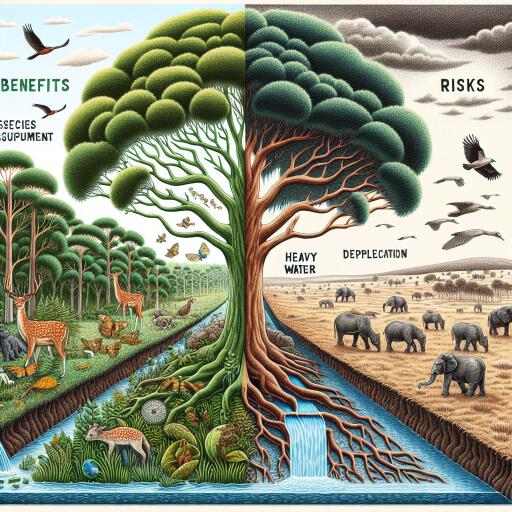
Ecological Impact Of Eucalyptus Trees: Balancing Benefits And Risks
The introduction of Eucalyptus trees into non-native environments has sparked considerable debate among ecologists, conservationists, and agricultural experts. Their rapid spread and dominance in certain ecosystems, particularly highlighted in the Western Negev region of Israel, provide a compelling case study for examining the broader ecological implications of cultivating these trees.
Eucalyptus trees, known for their robust growth and allelopathic properties — the ability of one plant to inhibit the growth of another through chemical means — pose significant challenges to local flora. This attribute, while beneficial for the Eucalyptus in reducing competition, can detrimentally affect the biodiversity and health of native plant communities.
An in-depth investigation focused on the impact of Eucalyptus trees, specifically three species: E. camaldulensis, E. loxophleba, and E. torquata, on the vegetation dynamics within certain areas of Israel. These areas, including the Be’eri forest and regions near Kibutz Re’im, are known for their rich herbaceous plant communities that are not only ecological assets but also support local grazing and hold cultural significance.
The findings from this research are enlightening. One of the major observations was a notable decline in under-canopy herbaceous biomass, which persisted even after accounting for the shade cast by the towering Eucalyptus trees. This decline in plant biomass indicates a potential suppression of native vegetation due to the chemical interactions initiated by the Eucalyptus.
Moreover, the flowering density of red anemones, a key species with both ecological and economic value due to its ability to draw in tourists, was negatively impacted. This reduction poses concerns over the potential loss of ecosystem services, which include, but are not limited to, the aesthetic and cultural value that these flowers add to the region.
The study also differentiated between the impacts of the three Eucalyptus species under scrutiny. E. torquata, in particular, was indicated to have a pronounced negative effect on local biodiversity, leading to nearly a 90% reduction in some herbaceous communities. Conversely, the other two species surveyed did not exhibit such drastic effects, suggesting variability in the allelopathic strength among species.
Given these outcomes, the study advocates for a nuanced approach to the cultivation and management of Eucalyptus trees within sensitive ecosystems or those areas geared towards tourism, such as the venues for the ‘Darom Adom’ festival. The significant disparity in the ecological impact of different Eucalyptus species further underscores the importance of species selection in reforestation projects, promoting those with minimal adverse effects on local flora.
In conclusion, while Eucalyptus trees may offer several ecological and economic benefits, including acting as natural barriers, providing nectar, and offering shade, their potential to disrupt local ecosystems through allelopathic interactions necessitates a careful and informed approach to their cultivation. This case study from the Western Negev not only highlights the need for ongoing research into the ecological impacts of non-native species but also emphasizes the importance of selecting tree species that harmonize with local ecosystems, thereby ensuring the preservation of biodiversity and the continued provision of essential ecosystem services.





Leave a Reply